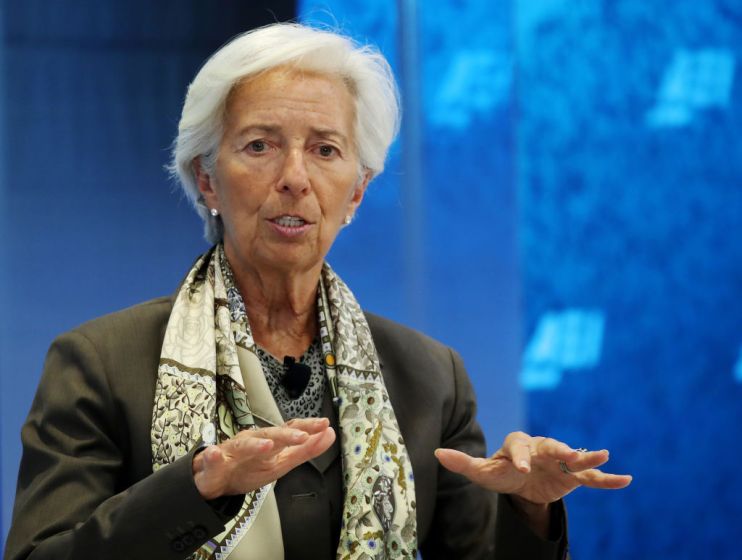ECB leaves interest rates on hold as it monitors recovery

The European Central Bank (ECB) has left interest rates at their current record-low level as it waits to see the trajectory of the Eurozone’s economic recovery.
But analysts think the Eurozone’s central bank will have to take more action later this year or early next, amid signs that the rebound is slowing down.
Read more: Eurozone economy’s recovery stumbles as coronavirus cases rise
Its main deposit rate will stay at minus 0.5 per cent. That means banks who leave their money with the ECB are charged to do so.
The pandemic emergency purchase programme (PEPP) – through which the ECB has flooded markets with cash during Covid – will stay at its current size of €1.35bn (£1.23bn).
The central bank said it “continues to stand ready to adjust all of its instruments, as appropriate, to ensure that inflation moves towards its aim in a sustained manner, in line with its commitment to symmetry”.
ECB president Christine Lagarde announced a slight improvement to the Bank’s 2020 growth forecasts. She cited improving consumer demand.
She also said the Bank was closely monitoring the rising euro. “Clearly to the extent that the appreciation of the euro exercises negative pressure on prices, we have to monitor carefully such a matter, and this was extensively discussed in the governing council,” she said.
The euro jumped as traders got the impression the ECB is not overly concerned by its recent strong rise. It was last up 0.9 per cent at $1.191.
ECB remains in wait-and-see mode
Like other central banks around the world, the ECB fired its big guns in the spring as the true scale of the coronavirus crisis became clear.
It left interest rates at record lows and launched its huge PEPP programme, though which it creates money and buys bonds in the secondary market.
The Eurozone economy shrank a record 11.8 per cent in the second quarter. And although it has recovered relatively strongly, there are signs that growth is slowing and new threats are on the horizon.
Unemployment is rising across the bloc and surveys have suggested confidence is falling. Meanwhile, coronavirus cases are rising.
But more worryingly for the ECB, inflation has turned negative and the euro has jumped. Its ten per cent rise against the dollar has hurt export competitiveness. And it could dent inflation further by reducing import costs.
The ECB did not address the currency in its monetary policy statement, as some analysts had predicted. Lagarde referenced it in her speech following the decision, but said she would not directly address its level.
She also noted that the ECB’s existing forecasts do not include the risk of outright deflation.
Read more: Exclusive: Bank of England spends £120,000 making HQ Covid-secure
Andrew Kenningham, chief Europe economist at Capital Economics, said he thinks the Bank is “not too worried about the currency at present”. He added: “In any case, there is not much the ECB can do about it.”
Kenningham said he thinks the ECB will add a further €500bn to the PEPP, “perhaps in March next year”. He said it would also “continue with its purchases beyond the current end-date of mid-2021”.